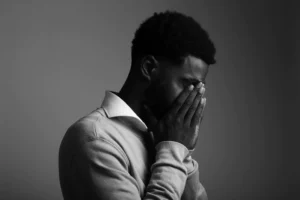Growing up homeschooled, I never had one of those long lists of required school supplies for the new year. But my mom loved back-to-school shopping, and my brother and I loved choosing a new notebook or pencil case along with our mechanical pencils or glue sticks. “A brand-new box of crayons is just exciting,” my mom always told me.
But I don’t have any school courses to prepare for this year. I don’t have new teachers to meet or homework to fit into my schedule, and I closed my last college textbook over five years ago.
School is officially over for me. But that doesn’t mean my education shouldn’t continue.
When did we stop trying to learn?
I’ve heard it said that we learn more in our first two years of life than we do in all the rest of our years combined. At birth, the size of a baby’s brain is approximately 25 percent that of an adult brain. By the time they turn a year old their brain size has doubled, and it will reach 90 percent by the time that child turns five.
Scientists estimate that children’s brains make one million new neural connections every second. It’s no wonder their brains are so busy. Young children learn to crawl, then walk, then ride a bike. They learn how to speak and understand a language while also meeting countless other physical and cognitive milestones. What we see as playtime and goofing around is actually a young child’s schoolroom — and they’re learning a lot more than we are.
I’ve always been fascinated by how intensely a baby or toddler will work to reach the next milestone. No matter how many times they fall down, they still figure out how to walk — often insisting that they don’t need any help. When did we lose that drive? When did we become satisfied with just doing what’s expected and no more? When did we stop trying so hard to learn?
God’s big classroom
“The earth is the Lord’s, and everything in it,” the psalmist David wrote. From mathematics to zoology to mass communication to the arts — there’s a big world out there, and as God’s people, we should be interested in learning about what He created.
When we learn, we discover more about God by studying what He made. We are humbled by everything we don’t yet know. We gain information we can use to help others or have meaningful conversations with them. When we learn, the world seems more exciting.
Ways to learn as an adult
Today there are more online learning opportunities than ever before, and even more so now as we wait out the coronavirus pandemic. Look for something you enjoy, are passionate about, or that could be helpful in your career path. Or consider trying something you’ve never studied before.
To get your feet wet, start with more general sites like TED Talks. In just a few minutes, I learned more than I’ve ever known about the history of the Brooklyn Bridge and the science behind flood control in the Netherlands. With TED Talks, you can find passionate speakers sharing their expertise on everything from behavioral economics to interface design to origami. One of these videos might be jumpstart your interest in something.
Learn a new language.
This is a big undertaking, but start out with a few phrases through apps like Duolingo. If you’re really serious, try chatting through Skype with a native speaker of your target language.
Try a new recipe.
A quick search for cooking tips on YouTube will bring up countless suggestions. Find some family recipes and expand your cooking expertise or try something on the grill.
Go beyond Bible study.
Check out the free courses at The Gospel Coalition or Biblical Training to expand your theological knowledge. Watch animated videos about books of the Bible or Bible themes from The Bible Project. For a more old-school idea, ask your pastor or a trusted friend or mentor what books they recommend you read. Once you read a book or two, meet up with them later to discuss what you read.
Make some music.
Again, start with a YouTube search for lessons or tips on your instrument of choice, and check the App store for some more ideas.
Get creative.
Try your hand at coding, or look into art supply and instruction subscription boxes. For a monthly fee, explore all kinds of graphic design and other art skills.
Give yourself some homework
What would it look like if we invested a few hours a week into going to school? Think how much more we could learn in a year, or even a month or two. Our options are endless and can seem overwhelming, but we can all begin by choosing something that interests us and starting there. No matter what season of life we are in, God still has a lot to teach us.
Welcome back to school! Enjoy your learning adventures. Crayons optional.
Copyright 2020 Lauren Dunn. All rights reserved.












